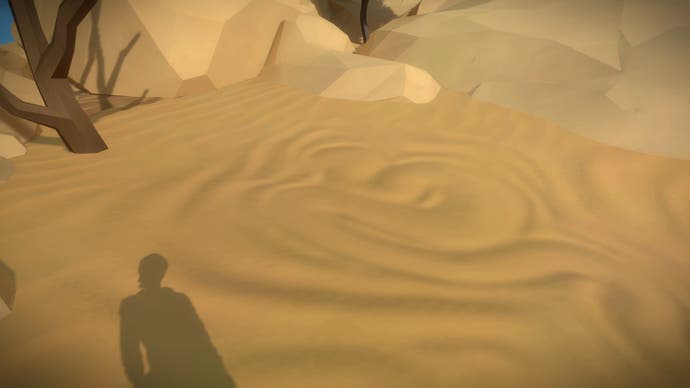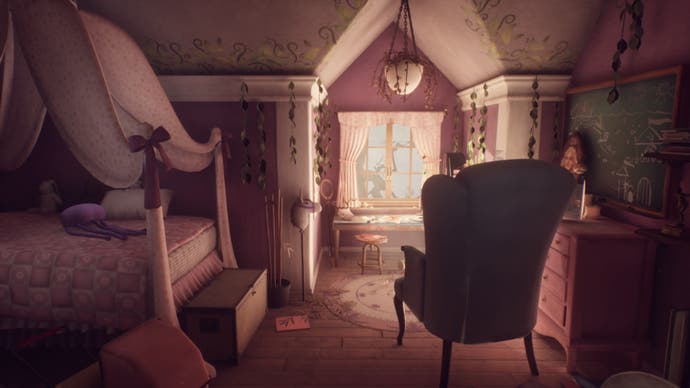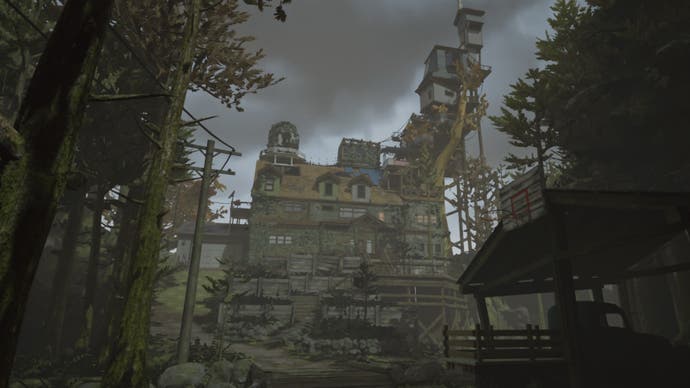Lonely worlds: gaining insight when surrounded by nothing
Always half empty and half full.
One of the most frustrating endings I've ever witnessed belongs to the excellent film A Separation, by Asghar Farhadi. The film's about a couple's pending divorce, their struggles navigating through adjusted lives and multiple court appointments, and it ends with their young daughter choosing which parent she wants to stay with. I can't say any more, but I can say that the frustration I felt was topped two years ago when The Witness was released, which took hours and hours (and hours) from many of us, giving us the job of deciphering mundane-looking line puzzles.
There's absolutely no doubt about the difficulties of making games like this, which put you in a lonely world with little sign of life to accompany you. They can produce a variety of reactions from us, most commonly allowing our minds to settle on the idea that all this aimless wandering will be worth it. Sometimes, however, endlessly travelling towards the scary unknown is the entire thrill, the way a good book ties its numerous characters and complex plot into a neat package only at the very end.
I've revisited The Witness a bunch in these last two years, and it's already popped up in multiple conversations, signalling just how influential it's already become in the gaming sphere. There's not a soul in sight as you walk across the colourful island completing the task you haven't really been designated to carry out. Instead, there are just mere illusions of another life, such as the statues demonstrating different periods of western civilisation.
These illusions are scattered throughout the game. For example, a line puzzle in the sand looks like someone on the ground, head down, praying. At first I thought it was my Muslim brain playing tricks, until I saw another puzzle in the monastery that looks like someone jumping, arms stretched far, like a central figure you'd see in a Renaissance painting. It's as if these little ploys are all there is to The Witness, with no narrative and seemingly no obvious purpose to reward your effort, just the practise of opening your mind to new perspectives.

The exploration in these peculiarly lonely games provides such a great salvation from our hectic lives. I won't forget the hours I put into Portal 2, for example, playing through new puzzles created every single day, or jumping across the waterfront in night-time Venice in the second Assassin's Creed game. They capture the innate purpose of our being, of wanting to explore new, uncharted territory - arguably the most alluring feature of video games.
As far as I'm concerned, the first example of this in the modern era was hidden in the first Halo game, especially its multiplayer maps. The Blood Gulch and Death Island stages were particularly fascinating, demonstrated by a review I still remember to this day, calling Halo, "simply the closest thing we have ever experienced to a living, breathing alternate universe." You can feel this even after you've killed hordes of enemies and as you trek across vast bridges in the middle of the game, snow surrounding your every sight.
Back on earth, nothing is more sparse and brutal than something like The Long Dark, where you're tasked with hunting in the wilderness for survival, killing bunnies and purifying water. Some of these games, like the aforementioned Witness, open themselves to unique valid criticisms. Any book, game or film that doesn't provide a thoughtful narrative leaves us wanting, asking us what their purpose is in being content with any or no particular reaction. Is that the modus operandi for some of these games? I'm not advocating for every story to be tied with a nice bow on top, as so many different creations of our collective imagination can "start out as poetry and end as product," which isn't exactly enticing.

Thankfully, the personal stories found in other titles, such as Gone Home and What Remains of Edith Finch, are the antidote to all of the above. Gone Home puts you in control of a young woman returning to an empty family home after an overseas trip. Edith Finch is also about navigating through an old house. The dark secrets you begin to uncover encompass the complete emotional range of human nature, because the realities described here are not too dissimilar to our own. Instead, these worlds feel like waking dreams, fully believable yet capturing a time that only exists in the unique way our mind creates it, filled with the melancholy we add with age.
Empty as they may seem, these so-called walking simulators are always about us though. We're going through a paradox: always connected online, and yet there's a shift towards loneliness in society, so many of us starring in our own depressing version of Up in the Air, living through life as a self-serving checkout machine. Gaming is not immune from this, with tedious online services springing up to falsely make up for the lack of games we can play sitting next to one another. Just last week, I created a Discord account only to realise I had nobody to add.
It used to be that online multiplayer games were the ones that tried creating an archetype of a "living, breathing alternate universe," with perpetual activity from all their users waking and sleeping in their respective time zones. Now, it feels like more stories and worlds are being created for us to roam around, looking for other hints of life, as we learn we're just living through our own lonely worlds. Maybe some games are just meant to be played alone, hoping we find answers somewhere along the path of our digital adventures.









